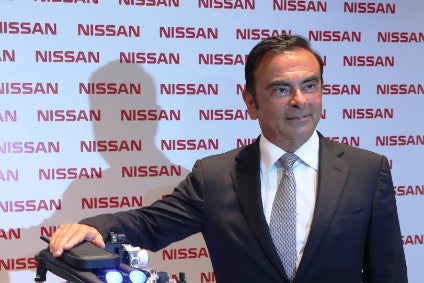Nissan Motor expects to appoint a new chief executive officer (CEO) by the end of October, following the resignation earlier this month of Hiroto Saikawa for financial improprietry after he admitted to being overpaid JPY47bn (US$437,000) in performance-linked remuneration. The Japanese carmaker is currently led by caretaker CEO Yasuhiro Yamauchi, a 63-year-old long-serving director of the company.
The irony here is that Mr Saikawa played a central role in bringing charges of financial misconduct against his former boss, the ousted former chairman Carlos Ghosn, leading to his arrest last November followed by months of incarceration. He is now under house arrest in Japan awaiting trial, with the first hearings scheduled for April 2020. While the amount Mr Ghosn is accused of appropriating illegally is far larger, with various charges said to amount to around US$84m combined, Mr Saikawa received none of the harsh police treatment handed out to his former boss.
Nissan’s image, and that of Japan Inc as a whole, have clearly been damaged by the events of the last ten months. Mr Ghosn’s very public arrest and subsequent dismissal from his post as chairman of Nissan was also seen by many as an effective board “coup” on the part of the company’s Japanese management to prevent a full merger between the two companies.
Many within Nissan, and Mr Saikawa in particular, have been unhappy with the dominance of Renault within their Alliance – particularly as Nissan’s vehicle output in recent years has been much higher than that of Renault. The French carmaker owns 43.4% of Nissan’s shares which it acquired some 20 years ago when, under the leadership of Carlos Ghosn, it helped prevent Nissan from going bankrupt. Nissan, on the other hand, currently owns just 15% of Renault shares with no voting rights and the feeling within its top management is that this cross-shareholding imbalance needs to be reweighted.
Renault has made it clear it has no intention of reducing its stake in Nissan and is not obligated to do so, nor is obliged to allow Nissan to increase its stake in Renault. Nissan’s nomination committee, led by an outside director, clearly needs to appoint a new CEO willing to rebuild bridges with Renault – something that Mr Saikawa failed to do – and get the shaky Renault-Nissan-Mitsubishi alliance back on track.
Although Renault is by far Nissan’s largest shareholder, it is difficult to envisage the Japanese carmaker appointing a foreign CEO given the current culture within Nissan’s top management. After the harsh treatment of the company’s former chairman by the Japanese authorities, it may be even more difficult to find a capable overseas candidate willing to take on this challenge.
Revenues and earnings plunge in Q1 FY2020
Nissan’s nomination committee also needs to bring in a CEO capable of turning around a company with a rapidly deteriorating balance sheet. Net revenues in the first quarter of the current fiscal year (April-June 2019) fell by close to 13% to JPY2,372bn (US$22bn), while operating profits fell by 98.5% to just JPY 1.6bn (US$15m) and net income was down by 94.5% at JPY6.4bn. The company’s stated policy of sacrificing sales volumes in return for higher margins, by reducing discounts and incentives, clearly hasn’t worked so far. Its first-quarter operating margin fell to 0.1% from 4% a year earlier.
On announcing its first-quarter results, Nissan said it would cut 12,500 jobs across its global operations this year – or around 9% of its workforce. The company’s share price is down by more than a third in the last year.
The company’s global sales, including the Infiniti and Datsun brands, fell by 7% year-on-year to 1,262,378 units in the April-June 2019 quarter year, which was more or less in line with the overall global automotive trend. This was thanks mainly to the company’s strong out-performance in China, where its joint ventures reported a sales decline of just 2.5% to 374,520 units against an overall market decline of almost 14% to 5.95 million units.
Nissan’s sales in Japan increased by just over 2.6% to 126,442 units in this period, in line with the overall market trend, while sales in the US fell by almost 4% to 351,185 units and in Europe volumes plunged by more than 16% to 135,455 units.
This followed a similar pattern in the last full financial year, to the end of March 2019, when global sales fell by 4.6% to 5,522,548 units – led lower by an almost 15% drop in Europe to 643,445units and a more than 9% drop to 1,443,725 units in the USA. Sales in China and Japan were both around 2% higher at 1,571,603 units and 596,087 units respectively.
There is little sign that Nissan’s operating performance will improve anytime soon. If anything, its global sales continuing to decline in July and August. Reports emerged earlier this year suggesting some departments within Nissan set up to oversee joint projects and other Alliance activities have been under-resourced and wound down. But this was while Hiroto Saikwawa was still in charge. The choice of the next CEO will likely be hugely indicative of the future direction of the Alliance.
See also: Nissan CEO Saikawa resigns amid compensation scandal







